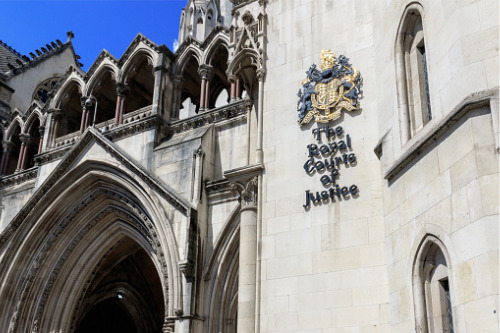

It’s here – the moment that the insurance industry and consumers throughout the UK have been waiting for since the early days of the COVID-19 pandemic – the final ruling on the appeal of the Financial Conduct Authority (FCA)’s business interruption case. Earlier today, the Supreme Court livestreamed its judgement, substantially allowing the FCA’s and the Hiscox Action Group (HAG)’s appeal and dismissing insurers’ appeals.
The Supreme Court noted that the case was brought forward by the FCA to appeal certain issues on which it did not succeed in the High Court cases, along with HAG. Six insurance companies also appealed the decision of the High Court on other issues and also responded to the FCA’s appeal. The insurers were Arch Insurance (UK) Ltd, Argenta Syndicate Management Ltd, Hiscox Insurance Company Ltd, MS Amlin Underwriting Ltd, QBE UK Limited and Royal & Sun Alliance Insurance Plc (RSA). Zurich Insurance Plc was also a respondent to the FCA’s appeal, but did not separately appeal the decision of the court.
The court addressed the issues arising on the appeals of the FCA with respect to six areas:
Commenting on the fact that the Supreme Court has backed policyholders in the FCA test case judgement, Richard Leedham, partner at Mishcon de Reya, the firm which represents the Hiscox Action Group, said he is glad the court has found that the vast majority of policyholders of non-property damage BI cover will have cover for their business interruption losses caused by the national response of Government to COVID-19.
“This includes most of the members of the Hiscox Action Group, whom we represented in the case,” he said, “and RSA and now all QBE policyholders whom we represented at first instance through my partner Sonia Campbell and Hospitality Insurance Group Action.”
He cited this as recognition by the Supreme Court that, when this cover was needed most by thousands of UK businesses, insurers did not have the right to argue that coverage was only applicable where narrow local restrictions were in place or to deny claims because the cover had not been intended to be provided, or because the interruption and losses would have occurred in any event.
“The judgment should be a massive boost to all businesses reeling from a third lockdown who can now demand their claims are paid,” Leedham said. “The hope and expectation of our clients is that the claim adjustment process starts immediately and that insurers will not continue to cause further distress by further unnecessary delay.”
Meanwhile, Manoj Vaghela, partner at Charles Russell Speechlys noted the impact of COVID-19 on businesses and said today’s ruling helps signal some light at the end of the tunnel.
“Although insurers argued that you could not simply rewrite the insurance contract to expand the scope of indemnity, it is a relief to see that the Supreme Court has shown a willingness to develop a new line of law on this occasion to support businesses,” Vaghela said. “In practical terms, this allows businesses to recover losses caused by COVID-19 cases within, for example, a certain radius of their premises even if it would still have suffered loss of turnover because of COVID cases outside of that area.”
Paul Smethurst, partner and forensic investigation specialist at accountancy firm, Menzies LLP, highlighted that, while today’s Supreme Court ruling provides clarity for many claimants, it is unlikely to provide a clear-cut resolution for all.
“There are still a number of untested issues,” he said, “which could give rise to further litigation. For example, the question of aggregation and whether insurers should accept that the disruption caused by the pandemic is one event or more.”
